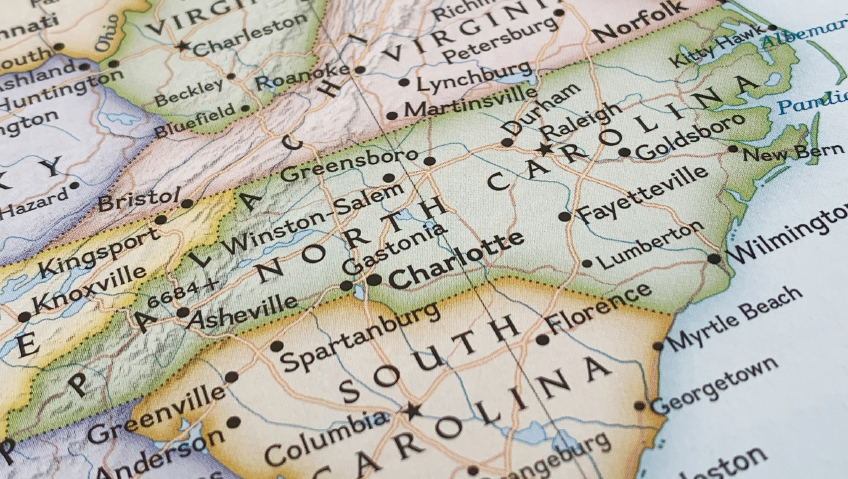In this month, we look at the history, the contributions and the achievements of the Black community in North America. Getting ahead in business can be an uphill battle at the best of times, and when one is faced with additional challenges of inequality in the form of wealth gap, lack of privilege, and outright racism, the struggle for success for an entrepreneur – especially a Black one – can be daunting.
One of the first places to start may be this: Why become an entrepreneur at all? That answer can be long and complex from a Black perspective, so to keep things more simple, let’s borrow from an article published in the Journal of Development Entrepreneurship, written by Micheal W. Ogbolu, Robert P. Singh and Anthony Wilson.
“Historically, entrepreneurship and self-employment have been the paths of economic advancement for disadvantaged people,” the article begins. “Given the high rates of unemployment and the low labor participation rates, the formation and expansion of Black-owned ventures is a viable strategy to address Black unemployment rates.”
And if you look at 2018 U.S. Bureau of Labor Statistics, it is likely that 32 percent of Black males do not participate in the labor market, which is the lowest among identified races. For Black women, the numbers are better, relatively. Black women actually have the highest rate of participation among groups of women, with 62.4 percent likely to participate.
Although, with this rate of participation, there’s some subtext for black women; approximately two-thirds are the primary or sole income providers for their households. So for many, there may not be much choice about having to work.
A big factor in all of the analysis I’ve read of those pursuing entrepreneurship is the rate of pay for Black workers. Simply and starkly put, Blacks and Hispanics earn considerably less. Median weekly earnings for White men is $1,002. For Black men, it is $735. For women, it’s slightly closer, with Black women earning $654 compared to $817 for White women. For the record, both Asian women and men earn the most.
So it’s a good question here – why participate in something where you are going to make less? Why not try to be your own boss?
Many Black people are saying yes to that question. In fact, 20 percent of Black people are entrepreneurs compared to 12 percent of White people. But for many potential Black entrepreneurs, there are a number of unique challenges on the path to success.
One of the biggest challenges for most entrepreneurs comes at the very beginning; start-up businesses usually need capital.
“One of the biggest barriers to Black and minority entrepreneurship stems from long-held beliefs by banks and other financial institutions that these entrepreneurs are higher-risk candidates for mortgages and other loans,” the Kellogg Insight at Northwestern University’s Kellogg School of Management reports.
For William Towns, a lecturer of social impact at the Kellogg School of Business, it’s important to identify how the financial industry can be part of the reason why Black entrepreneurs struggle to get the capital their business needs. The structure of credit scores and credit that’s been in place for years needs to be reconsidered.
“It’s a simple change to say, ‘have they ever missed a payment? No? Then why are we penalizing them for using a larger portion of their credit limit,’” says Towns. “We now know through research and data that it’s not a good indicator of who’s a good person to lend to, and it has no impact on their ability to be a good borrower.”
And these issues are not just unique to the U.S. A survey of Black entrepreneurs in Canada revealed that three-quarters said their race made it harder to succeed in business. To help level the field to some degree, the country’s largest lenders are working with the government to invest $221 million to give young, Black entrepreneurs that important access to capital and other support to start a business.
These are some initial steps to help make capital more accessible, but beyond capital there is also a need for more opportunities for networking and mentoring. Often Black entrepreneurs starting out don’t have someone they can turn to with business experience to help provide solutions to start-up related challenges. It is important to not just have access to money, but also access to a network of experts who have been there, and connections to sponsors in the Black community and Black organizations.
This has never been more urgent then now as we continue to live with a global pandemic. Traditional opportunities to meet and make connections with other Black entrepreneurs, and connections in their local community, are evaporating. How important are these opportunities?
A study of New York based start-ups showed founders who are mentored by top-performing entrepreneurs are three times more likely to succeed compared to those who don’t receive the mentoring.
In a report titled, “Building supportive ecosystems for Black-owned U.S. businesses,” global business consulting group McKinsey notes that one of the ways to bridge this gap, not only in the current situation, but into the future is through digital means.
“Digital capabilities will increase Black entrepreneurs’ share of opportunities,” notes the report. “But private-sector and social-sector organizations can provide free technology services and managerial assistance.”
It is through this connection of experienced entrepreneurs with new, Black entrepreneurs that we can establish a new generation of experienced business people, who can in turn create an established network for the next generation of businesses.
And as the saying goes, “a rising tide lifts all boats.” Providing more opportunities for Black entrepreneurs is really also about providing more opportunities to grow the economy as whole.
According to recent census data, about 14 percent of the U.S. population identifies as Black. But Black entrepreneurs only account for 2.2 percent of the nation’s 5.7 million employer business.
Researchers at the Brookings Institute in Washington say that if Black entrepreneurs reached their full potential, there would be on the order of 800 thousand more Black businesses which could in turn bring in $600 billion to the economy’s bottom line and ultimately up to 1.6 million jobs! Those numbers are very hard to ignore.
As Black activists Tynesia Boyea-Robinson, president and CEO of CapEQ, and Andre M. Perry, senior fellow at the Brookings Institution, write in CNN Business:
“We need public-private partnerships that will set or re-establish goals to increase the number of Black businesses that qualify for government and large corporate contracts. Governments and corporations can encourage growth and activity by adopting new procurement processes that facilitate inclusion. For example, New Orleans’ regional transit authority pledged that a minimum of 31 percent of its federally provisioned grants would go to contracts with minority-owned businesses in the area.”
A roadmap to change and growth for Black entrepreneurs is underway. But there’s much more to be done, from the political offices to grassroots community initiatives, Boyea-Robinson and Perry say.
“By establishing clear, measurable goals for strategic investment, the Biden administration can help foster a culture of development. Government agencies, corporations and civic groups must help the current administration do just that. By doing so, we can grow our economy, increase the resiliency of our communities and empower more individuals.”
Here’s the thing. After looking at some of the issues facing Black entrepreneurs, it is important to state the while I have written this article, my heritage is not Black. I have identified some of the challenges that Black entrepreneurs face based on the research for this article, but in no way do I assume to know these challenges from a perspective of a Black entrepreneur.
It’s my hope that this article can spur conversations that may not otherwise happen. That is just one important action that we can all take together if we want a healthy and diverse economy to build on.






